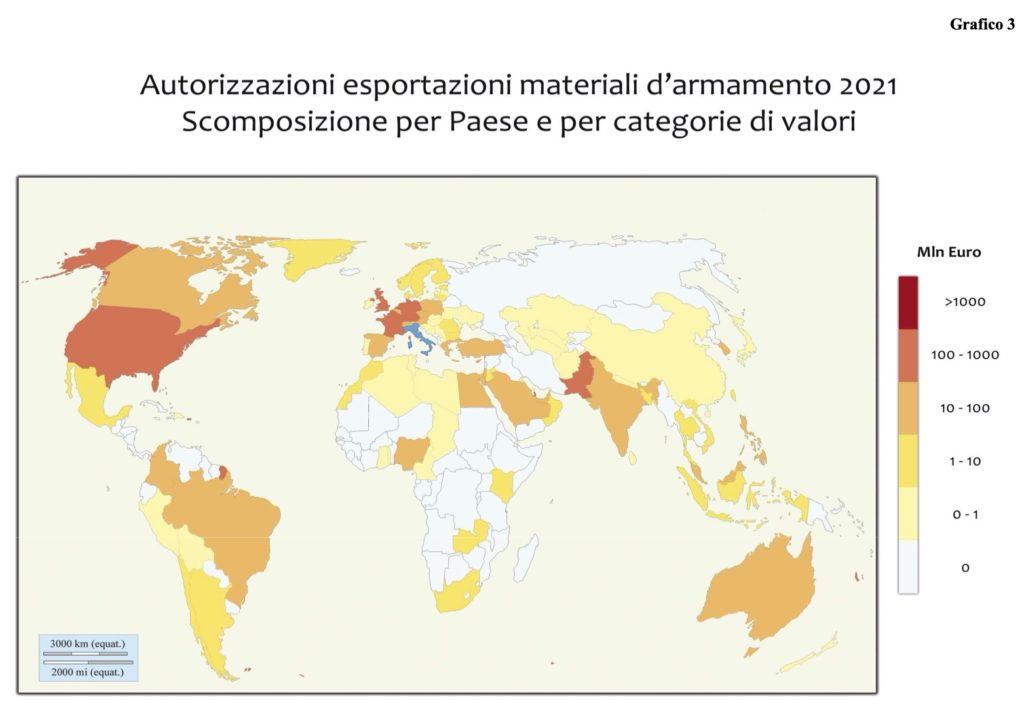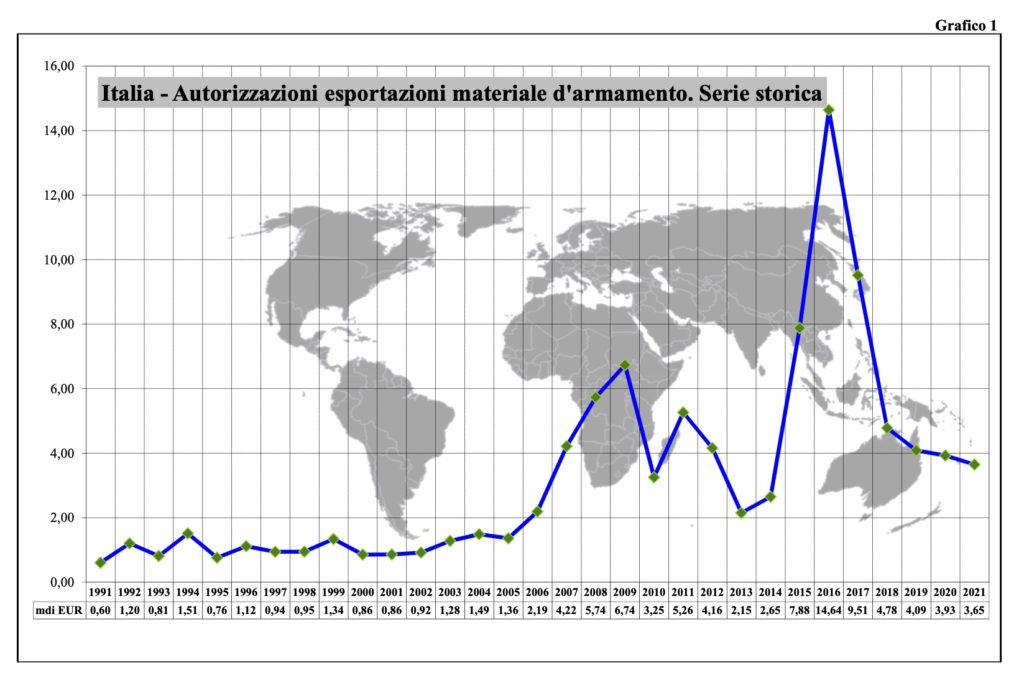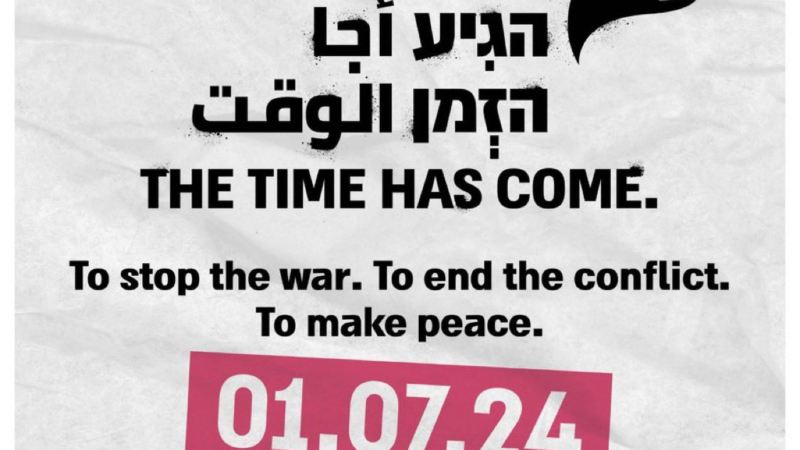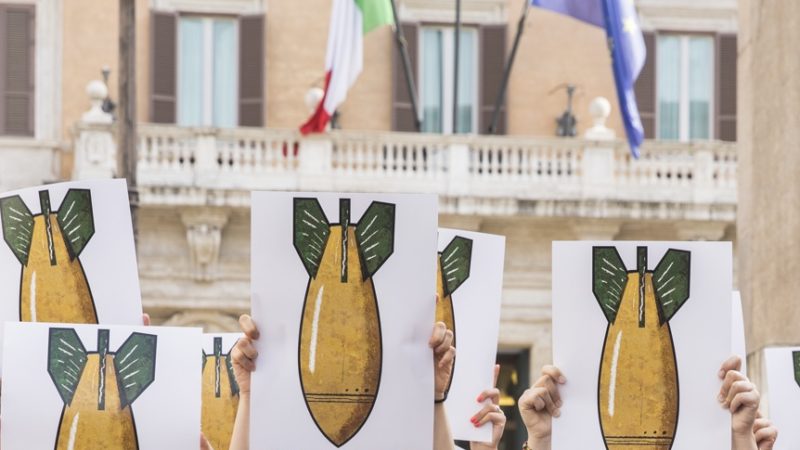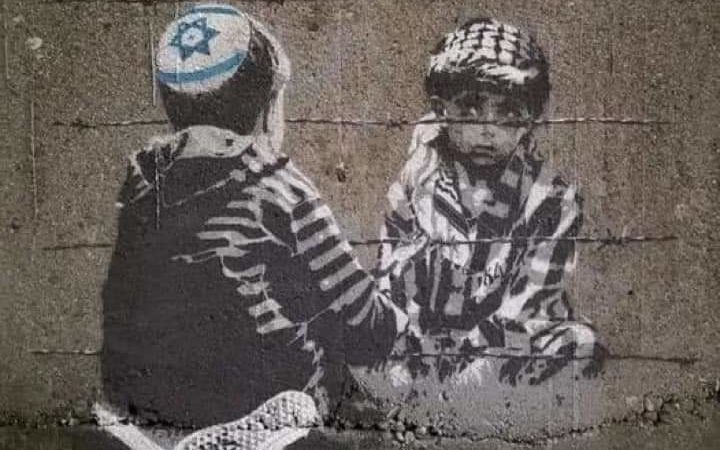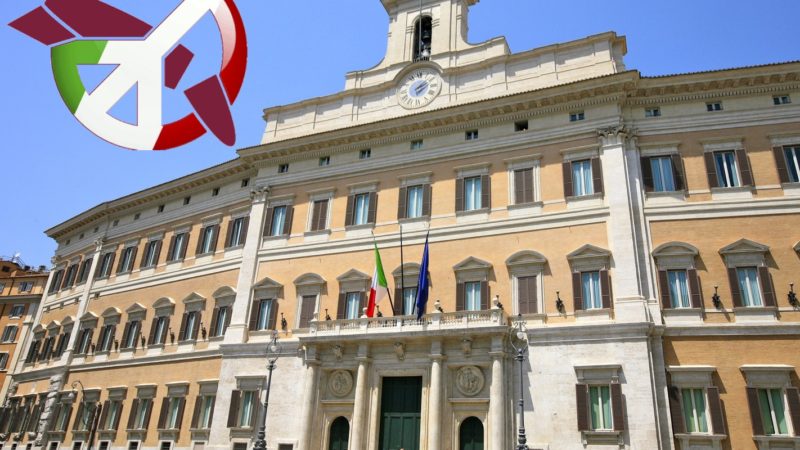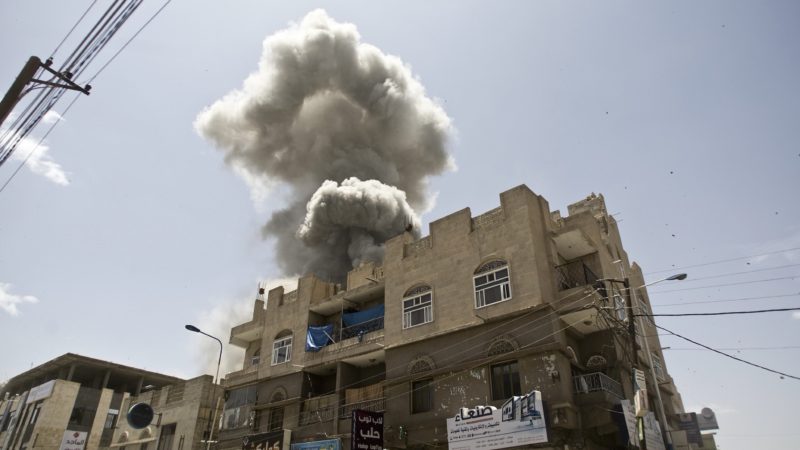Italian arms: in 2021 a historical record of actual exports worth almost 4.8 billion
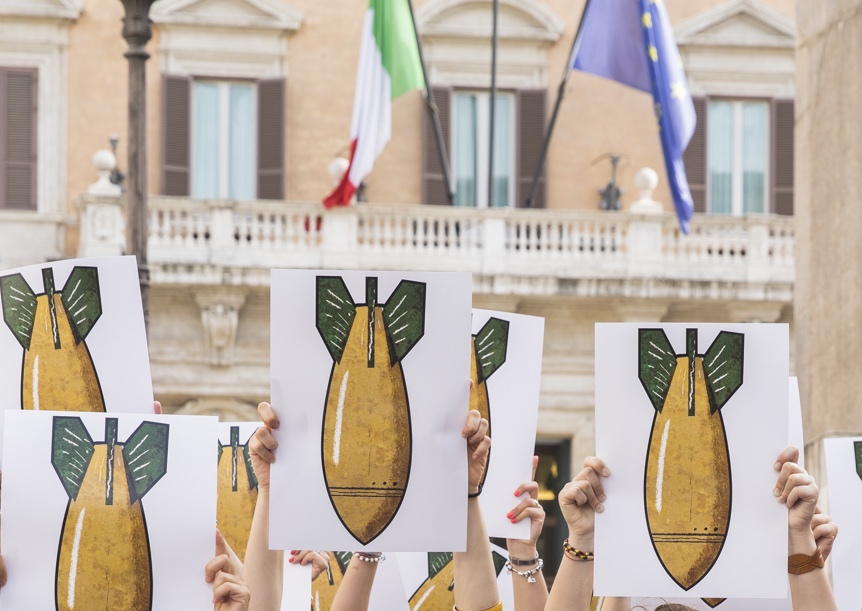
Following public reports by the analysts of the Italian Peace and Disarmament Network, a new and corrected version of the Annual Report to Parliament on arms exports has been published in recent days – without much evidence.
Only thanks to the updated document is it possible to know how in 2021 there was a historical record of actual and definitive exports of military materials (over 4.7 billion euros) while new authorisations remain high (for a total of 4.6 billion euros).
The second version of the ‘Report on the operations authorised and carried out for the control of the export, import and transit of armaments materials’ relating to operations carried out in the year 2021 was published a few days ago (Friday 13 May) on the websites of the Chamber and Senate. The new version of the two volumes of the Report prepared by the Prime Minister’s Office corrects and integrates a large amount of erroneous information that was missing from the first version, which was sent to Parliament on 5 April and published a few days later on the websites of the Chamber and Senate.
In particular, the first volume prefixes to the hundreds of pages of the Report a page of ‘Errata corrige’ that replaces all the data communicated to the Prime Minister’s Office by the Customs Agency concerning actual arms export transactions, while in the second volume, the entire document drawn up by the Customs Agency is replaced by a new version, which lists the data in their entirety, without, however, clearly highlighting the considerable difference with the figures disseminated in the first draft, which was also reported in the media.
This followed a number of articles and interviews by analysts from the Italian Peace and Disarmament Network, and in particular from the Permanent Observatory on Light Weapons and Security and Defence Policies (OPAL), in which they had pointed out numerous anomalies and inconsistencies in the Customs Agency’s report contained in the first version of the Report
We consider it unacceptable that a section of the government report on Italian arms exports of such considerable technical and political importance for public opinion as that of the Customs Agency should have been sent to the Prime Minister’s Office without the necessary checks on the data reported. And it is inconceivable that the Offices of the Presidency of the Council, in particular that of the Military Adviser, which as every year have the task of collecting the documentation from the competent Ministries and preparing an introductory report, did not detect the anomalies and inconsistencies in the data transmitted by the Customs Agency. Above all, we consider it unacceptable that the correction and supplementation of the Report in the second version was done in secret without giving due notice and justification to Parliament and citizens. We point out that it was only thanks to the attention and meticulous analysis of the researchers of the Italian Peace and Disarmament Network that the Prime Minister’s Office and the Customs Agency revised the Report and published the new version. This highlights, once again, the competence of our associations in the control of information concerning Italian arms exports. The Italian Peace and Disarmament Network asks the Foreign and Defence Committees of the Chamber of Deputies and the Senate to arrange hearings during which our Network’s experts can illustrate the many critical aspects of Italian military system exports and their negative impact on international peace and security.
Italian military export figures for 2021: all-time high in actual exports
The figures in the second version of the government report show that in 2021, a year largely marked by the Covid-19 pandemic, Italian military companies worked at full capacity exporting armaments to the world for a countervalue that is an all-time record: almost 4.8 billion euro. Among the largest recipients of ‘made in Italy’ military systems are Qatar (958,849,653 euro), Kuwait (875,393,504 euro), Egypt (773,289,163 euro), and Turkmenistan (378,470,352 euro), all countries that, as is well known, certainly do not excel in terms of high levels of democracy and respect for human rights. Scrolling down the long list, after the United Kingdom (€233,466,565), the United States (€223,451,692) and France (€148,001,753), we also find Saudi Arabia (€135,844,327) and the United Arab Emirates (€122,460,394), just ahead of Germany (€128,755,982) and immediately followed by Pakistan (€87,774,972).
New Export Authorisations Remain High: Main Recipients
New individual authorisations show a slight decrease from €3,927,988,408 in 2020 to €3,648,843,633 last year, a decrease that is offset by project ‘global licences’ and various transfer authorisations that mainly concern joint military projects between EU and NATO countries: to the €3,648,843. 633 euros of ‘individual authorisations’ (i.e. for individual export licences) must be added to the 1,012,348,699 euros of ‘global licences’ and ‘general licences’ and ‘intermediations’, which represent a tool for companies to simplify procedures: the final total of authorisations issued in 2021 is therefore 4,661,192,334 euros, a slight increase compared to the previous year (4,647,446,532 euros). It should be noted that the value of the not precisely defined ‘intermediations’ reaches the remarkable figure of €90 million, although it does not reach the enormous levels (almost half a billion) touched in some cases in more recent years.
The drop in individual licences was also affected by the decrease in orders, especially from non-EU countries that, with limited resources, had to cope with the Covid-19 pandemic. This is also the reason why, for the first time in the last six years, the value of individual export authorisations to EU and NATO countries exceeded that of countries outside Italy’s two political and military alliances: EUR 1.9 billion (52.1%) compared to EUR 1.7 billion (47.9%) issued to non-EU and NATO countries.
It should be emphasised that this year too, the top recipient of new Italian arms licences is a Middle Eastern country, Qatar, which, with over €813 million, is well ahead of the United States (€763 million), France (€306 million) and Germany (€263 million). The main purchasers also include Pakistan (204 million), the Philippines (99 million), Brazil (73 million), India (60 million), the United Arab Emirates (56 million), Malaysia (48 million), Saudi Arabia (47 million) and the ever-present Egypt (35 million) – which had been the first recipient in the previous two years – whose police forces and government bodies continue to be supplied by Italy with ‘light arms’ including pistols and automatic rifles. More than 970 million euro of export licences (26.6%) concern North Africa and the Middle East: a worrying figure considering that this area constitutes one of the world’s most tense zones. An area to which the Draghi government, like its predecessors, has therefore continued to send armaments with the approval of Parliament, which has rarely raised objections.
Data show that the total world State to which Italian arms sales were authorised in 2021 is 92.
Saudi Arabia and UAE licences revoked but new licences issued
The report states that in January 2021, the Farnesina Unit in charge of military export authorisations (UAMA), in compliance with a parliamentary resolution, revoked six export licences worth a total of EUR 328 million to the company RWM Italia relating to ‘aircraft bombs and missiles’ that were destined for Saudi Arabia and the United Arab Emirates because those devices could be used to strike the civilian population in Yemen. According to the report, this revocation should remain in place ‘until there are concrete developments in the peace process in Yemen’, and therefore no new authorisations should be allowed to be issued to Saudi Arabia and the United Arab Emirates for types of munitions such as ‘aerial bombs and missiles’. The Report, on the other hand, shows almost 45.9 million euro of new authorisations for military materials destined for Saudi Arabia, including those in the ‘M 004’ category, i.e. precisely ‘bombs, torpedoes, rockets, missiles and accessories’: although the various data are cross-referenced, it is not possible to know the type of bombs and the company that received the authorisation.
“The revocation,” the report of the Presidency of the Council makes explicit, “took place, upon a resolution of the Parliament of 22 December 2020, after the term provided for in the suspension measures of the same authorisations, arranged for 18 months, in 2019, following parliamentary motion no. 1-00204 of 26 June 2019 of the Chamber of Deputies, which had committed the Government to take the necessary steps to suspend exports of aerial bombs and missiles that can be used to target the civilian population and their components to Saudi Arabia and the United Arab Emirates until there are concrete developments in the peace process with Yemen”. But Resolution Resolution no. 7/00589 of 22 December 2020 committed the Government not only “to take the necessary steps to revoke the existing licences relating to exports to the countries of Saudi Arabia and the United Arab Emirates of aerial bombs and missiles, which can be used to strike the civilian population, and their components” but also to “maintain the suspension of the granting of new licences for the same materials and countries and to assess the possibility of extending this suspension to other types of armaments as well, until there are concrete developments in the peace process”. In the light of this resolution, it should therefore be clarified precisely which types of military materials were the subject of the new export licences issued in 2021 to Saudi Arabia and the United Arab Emirates.
Top Italian Armaments Exporting Companies and Related Banking Operations
In 2021, the top 4 companies by total value of military export licences were Leonardo (with 43.45% and always well above the overall billion), Iveco Defence Vehicles (23.48%), MBDA Italia (5.19%) and GE. Avio (3.87%) representing about 76% of the overall value. Leonardo received about 28% of the total authorisations (612 out of 2,189) while the top 15 operators received 1,192 authorisations, about 54% of the total.
In 2021, the Ministry of Economy and Finance received reports from credit institutions for transactions related to ‘final exports’ of armaments amounting to €5,056,602,050, to which €1,166,058,341 should be added for transactions carried out in implementation of Intergovernmental Armaments Programmes and €454,076,416 for global licences. The credit and financial institutions that carried out transactions, mainly for collections on behalf of companies that are their customers, but also for loans and guarantees, are in the following order Unicredit (€2.8 billion), Intesa Sanpaolo (€1.3 billion), BNP Paribas Succursale Italia (€745 million) and BNP Paribas (€117 million), Crédit Agricole (€645 million), Sace (€518 million), Bayerische Hypo und Vereinsbank (€316 million), Deutsche Bank Spa (€249 million) and Deutsche Bank AG (€82 million), , Banco Santander (€190 million), Banco Bilbao Vizcaya Argentaria (€82 million).
